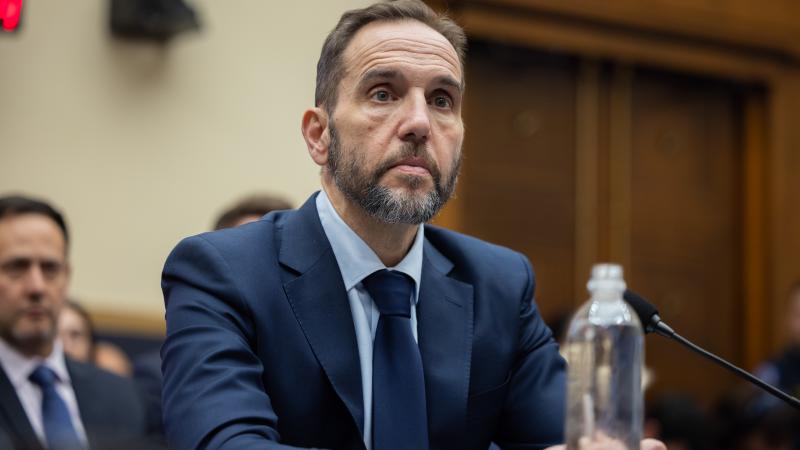Biden using alleged unregistered Iranian agent as 'bargaining chip' in nuke talks: rights group
"President Biden needs to stop being the Appeaser-in-Chief and be Commander-in-Chief," the Iranian Americans for Liberty executive director said.
The Biden administration is facing outcry after allowing for a third delay in the trial of an alleged unregistered foreign agent for Iran whom critics say is being used as a "political bargaining chip" in nuclear negotiations with the Islamic Republic.
Author Kaveh Lotfolah Afrasiabi was charged on Jan. 19, 2021, with acting as an unregistered agent for the Iranian government. For more than 10 years, "Afrasiabi allegedly sought to influence the American public and American policymakers for the benefit of his employer, the Iranian government, by disguising propaganda as objective policy analysis and expertise," Acting U.S. Attorney Seth DuCharme said.
Afrasiabi's attorney requested for the trial, originally scheduled to move forward this month, to be pushed to April 20, 2022, citing "medical issues that make it difficult for [Afrasiabi] to assist in the preparation of his defense." The trial had already been postponed twice last year.
"It's clear to us that Afrasiabi is being used as a political bargaining chip by President Biden," Iranian Americans for Liberty Executive Director Bryan Leib told Just the News. "Biden has been appeasing the Iranian Regime since the moment he took office."
The case has been delayed, but a new date has yet to be set, a Department of Justice (DOJ) spokesman told the Washington Free Beacon.
"We call on President Biden to prove us wrong that Afrasiabi is not being used as a bargaining chip and to instruct the DOJ to reverse their postponement and order a trial for the first week of February," Leib said. "President Biden needs to stop being the Appeaser-in-Chief and be Commander-in-Chief."
Republican Reps. Jefferson Van Drew (N.J.), Yvette Herrell (N.M.) and Eric Crawford (Ark.) have written two letters to Attorney General Merrick Garland about their concerns with delaying Afrasiabi's trial.
"Given the increasing tension between the United States and Iran, we are concerned that Afrasiabi is being used by the Iranian regime as a political tool for backdoor negotiations," the lawmakers wrote in October after Afrasiabi's trial was postponed a second time.
"Just two weeks after we sent you our July 14th letter, the United States and Iran backed out of indirect nuclear discussions, which had already lasted six rounds," the legislators stated, adding that "it is imperative that the DOJ send a stern message to Iran and other adversaries that the United States will not tolerate any efforts to undermine our democracy."
In a statement last week, Iranian Americans for Liberty said: "All Americans should be deeply concerned about these recent developments. We hope Secretary Blinken and Special Envoy Malley are not interfacing with the Justice Department on Afrasiabi’s behalf. We call on the DOJ to immediately reverse this decision and order a jury trial in the next 30 days."
The DOJ touted the criminal charges against Afrasiabi as a success in its 2022 National Security Division performance report to Congress. The Iranian citizen is listed as the first example of the department "Combatting Malign Foreign Influence."
The DOJ report stated that "since at least 2007 Afrasiabi allegedly had also been secretly employed by the Iranian government and paid by Iranian diplomats assigned to the Permanent Mission of the Islamic Republic of Iran to the United Nations in New York City."
Afrasiabi has maintained his innocence. "Whatever I did was perfectly legal and fully transparent," he said shortly after his arrest.
(CORRECTION: An earlier version of this article referred to Kaveh Lotfolah Afrasiabi as an "alleged Iranian spy." In fact, the Department of Justice charged him with "acting and conspiring to act as an unregistered agent of the Government of the Islamic Republic of Iran, in violation of the Foreign Agents Registration Act (FARA)."













